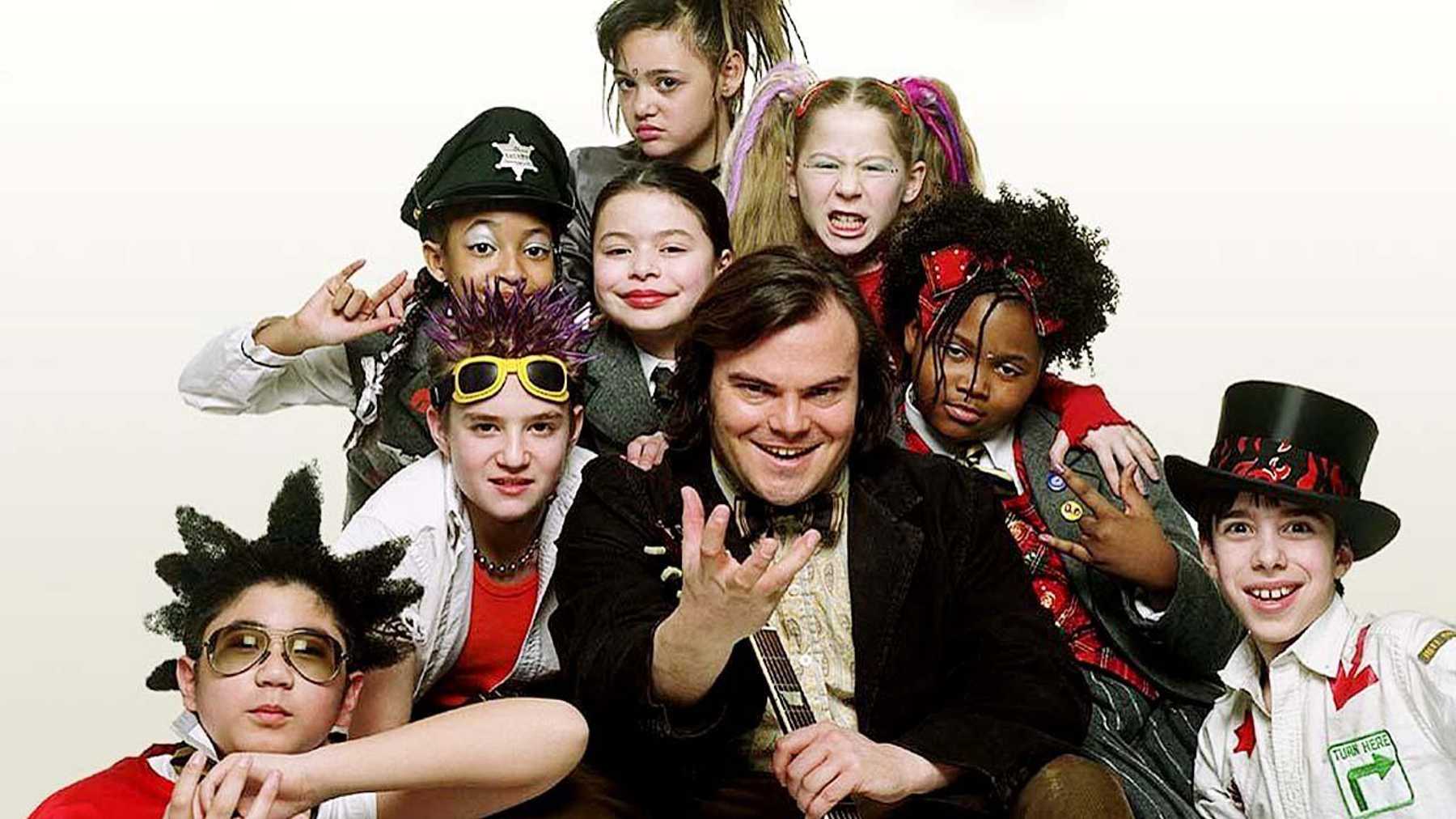Every month, we at The Spool select a filmmaker to explore in greater depth — their themes, their deeper concerns, how their works chart the history of cinema and the filmmaker’s own biography. This month, in honor of his latest film Where’d You Go, Bernadette? we turn our eye to Austin’s favored son, Richard Linklater. Read the rest of our coverage here.
School of Rock holds a unique distinction in Richard Linklater’s filmography; to date, it’s his only film that Andrew Lloyd Webber saw fit to adapt into a musical. And hey, it’s not the worst idea Andrew Lloyd Webber’s ever had. (That’s Love Never Dies.) With its goofy yet lovable protagonist, talented supporting cast, and catchy soundtrack, the 2003 comedy plays like musical theater in the best possible way. Heck, there’s even an 11 o’clock number that leads nearly every character to an important realization. And what a joy it is to get there.
School of Rock stars Jack Black as Dewey Finn, a down-on-his-luck musician who can’t pay his rent or stage dive; truly, he’s in dire straits. After getting kicked out of his Roger-from-RENT-led band No Vacancy, a desperate Dewey poses as his substitute-teacher roommate Ned (Mike White, who also wrote the screenplay) and secures a long-term gig at the Horace Green prep school. Upon discovering the kids’ collective musical talent, he goes from unqualified math sub to frontman of a half-novelty, half-legitimately good rock band. Dewey decides to enter the aptly named School of Rock in a Battle of the Bands against No Vacancy, keeping up the charade and charming Horace Green’s principal Rosalie Mullins (Joan Cusack) along the way.

No screen time is wasted in School of Rock. It’s full of small but significant character moments as Dewey forges bonds with every member of his class/band and connects with Rosalie over beers and Stevie Nicks’ “The Edge of Seventeen.” White’s script plays to Black’s strengths, giving him room to be everything from off-puttingly outsized to the most quietly charismatic guy in the room. The story is simple enough in its structure, hitting the beats we’ve come to know from family-friendly comedies and musicals, but it also subverts our expectations with its expertly directed climax: the School of Rock’s performance at the Battle of the Bands.
Linklater isn’t showy with School of Rock, but his brilliance truly shines through here. The School of Rock looks like a real, live rock band performing their biggest hit in front of a raging crowd—in this case, full of angry parents and confused but enthusiastic concertgoers. Then the unthinkable happens: No Vacancy wins, Dewey is distraught, and there’s a distinct possibility our hero will suffer the consequences of defrauding a prep school for several weeks. And then there’s another turn: the kids convince Dewey that kicking ass in front of a crowd was just as good as a victory and Dewey turns down No Vacancy’s offer of a spot back in the band, opting instead to start a new business out of his apartment, where he and Ned offer lessons to budding young musicians, the School of Rock included.
In the end, as with Linklater’s best work, everything feels right.
The makeshift 11 o’clock number and the denouement are what make the film feel distinctly Linklater. School of Rock’s structure and tone differ from a lot of his films—a subtle yet powerful meditation on how relationships evolve, this ain’t—but in the end, as with Linklater’s best work, everything feels right.
To me, that’s a hallmark of Linklater’s filmography: things don’t necessarily end neatly or happily, but they always end satisfyingly. It may not be his most prestigious movie, but School of Rock sticks the landing, leaving you with a smile on your face and Led Zeppelin’s “The Immigrant Song” in your heart.

